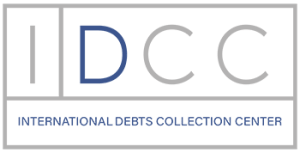International debt recovery has become a divisive issue, stirring up controversy and unsettling financial markets worldwide. The pursuit of defaulters has turned into a high-stakes game played by agile profit-seekers, armed with intricate legal strategies and relentless determination.
These global debt hunters, often representing multinational corporations or shadowy financial entities, are using both legitimate and questionable methods to track down and extract money from delinquent debtors on an unprecedented scale. As concerns mount over the ethics and consequences of this complex industry, questions arise about the impact on the global economy and the integrity of national legal systems.
This article dives into the fascinating world of international debt collection, exposing the intricate web of power, money, and accountability that underlies it all. Buckle up, for it is a tumultuous ride that will challenge your preconceptions and uncover a side of finance rarely seen.
Welcome to the realm of the global debt hunters, where controversy reigns supreme.
The Rise of International Collection Agencies
These global debt hunters specialize in the recovery of outstanding debts across borders, leveraging their expertise and resources to trace debtors and facilitate the repayment process. However, the industry is not without its controversies. Critics argue that some agencies employ aggressive tactics and disregard local laws and regulations. Nonetheless, global debt hunters remain essential players in the global financial landscape. Looking ahead, technological advancements and evolving regulations are likely to shape the future of the international debt collection industry.
Controversies Surrounding Global Debt Recovery
Critics argue that some collection agencies use aggressive tactics, like constant harassment and threats, to pressure debtors into paying. This behavior violates consumers’ rights and damages the industry’s reputation. Additionally, concerns have been raised about the legality and transparency of debt collection practices. Some agencies have been accused of operating in a way that ignores local laws and regulations, which adds fuel to the controversies surrounding international debt recovery.
Social media platforms have become a battleground for disgruntled debtors and individuals sharing negative experiences with international collection agencies. These platforms have played a significant role in exposing controversial practices and holding agencies accountable. The power of public opinion has led some countries to tighten regulations, aiming to protect consumers from abusive practices.
With increased scrutiny and demand for transparency, international collection agencies now face the challenge of rebuilding trust and operating within legal and ethical boundaries to restore their tarnished reputation.
Future Trends in the International Debt Collection Industry
The future of international debt collection is set to experience significant changes due to advancing technology and globalization. One major trend is the increasing use of automation and artificial intelligence (AI) in debt recovery. AI algorithms are capable of analyzing vast amounts of data, identifying patterns, and expediting the identification of debtors with higher recovery potential. Additionally, the integration of blockchain technology can enhance transparency and security in debt collection transactions, reducing the risks of fraud and disputes.
Another important trend in international debt collection revolves around the growing emphasis on ethical practices and customer-centric approaches. Collection agencies now prioritize the maintenance of positive relationships with debtors by adopting personalized and empathetic strategies. This shift toward a more compassionate and understanding approach aims to encourage voluntary repayment and mutual agreements while avoiding unnecessary conflict. Furthermore, debt collection firms invest in resources to provide debtors with accessible and transparent information, empowering them to make informed financial decisions and effectively resolve their debts.
articly.ai tagvoicedrop.ai tag
Frequently Asked Questions
International debt collection is the process of pursuing and recovering debts owed by individuals or businesses outside of the collector’s country of origin.
International debt collection is controversial due to various factors. These include cultural differences, differing legal systems, language barriers, and concerns over ethical practices.
International debt collection agencies face challenges such as tracking down debtors in foreign countries, navigating complex international laws, dealing with currency conversions, language barriers, and cultural sensitivities.
International debt collection agencies employ various methods to locate debtors in foreign countries, including online research, collaboration with local agencies, accessing public records, and utilizing skip tracing techniques.
International debt collection involves navigating the legal systems of multiple countries. Debt collectors must ensure compliance with both the laws of the debtor’s country and those of their own country, as well as international regulations governing debt collection practices.
Technology plays a crucial role in international debt collection by enabling efficient communication, data analysis, and tracking of debtors across borders. It also facilitates online payments and provides tools to streamline the debt recovery process.
Ethical concerns in international debt collection arise from issues such as harassment, invasion of privacy, dishonest collection practices, misrepresentation, and fraudulent activities. It is important for debt collectors to adhere to ethical guidelines and regulations.
International debt collection plays a significant role in stabilizing global economies by recouping funds owed to creditors. It promotes financial stability, ensures repayment of debts, and enables businesses to maintain liquidity and continue their operations.
Before engaging in international debt collection, individuals and businesses should consider factors such as the feasibility of debt recovery, legal and cultural complexities, associated costs, potential reputational risks, and the need for professional expertise.
Conclusion
In today’s interconnected world, where businesses transcend borders and debts can often become global in nature, the role of an international collection agency has become increasingly vital. With its specialized knowledge and expertise, such an agency plays a pivotal role in assisting creditor organizations in recovering outstanding debts across different countries and jurisdictions.
These agencies employ a multifaceted approach, combining legal expertise, negotiation skills, and cross-cultural sensitivity to navigate the complex terrain of international debt collection. Their services range from amicable negotiations to legal proceedings, with the ultimate goal of ensuring fair resolution while upholding the principles of professionalism and ethics.
By bridging the gap between creditors and debtors across diverse cultural and legal landscapes, an international collection agency acts as a valuable intermediary, facilitating the effective recovery of debts and safeguarding the financial interests of businesses around the globe.








